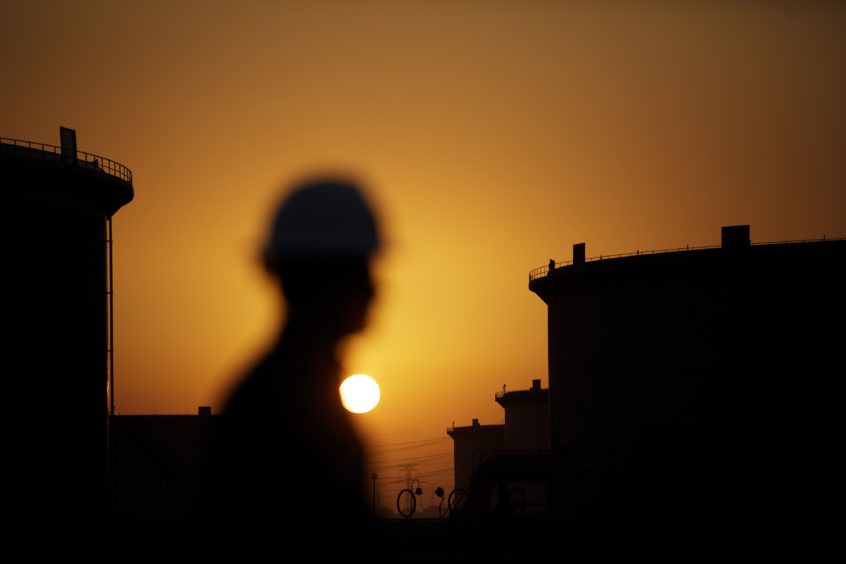
Saudi Arabia urged fellow members of OPEC+ to “keep our powder dry” before crucial talks about whether to increase oil production next month.
The comments were the latest signal that the kingdom — the leader of the group alongside Russia — still prefers to keep a tight restraint on oil output as the market gradually emerges from the coronavirus pandemic. Brent crude jumped as much as 2.3% to $65.52 a barrel.
“At the risk of sounding like a stuck record, I would once again urge caution and vigilance,” Saudi Energy Minister Prince Abdulaziz bin Salman said at the opening of the OPEC+ video conference on Thursday. “Before we take our next step forward, let us be certain the glimmer we see ahead is not the headlight of an oncoming express train.”
The Organization of Petroleum Exporting Countries and its allies have kept oil-watchers guessing about their next move in the buildup to the meeting. Preliminary talks on Wednesday offered few clues as to whether the market will get the April supply increase it had been expecting.
A familiar divide was emerging in the negotiations, with Saudi Arabia advocating output restraint and Moscow keen to pump more crude as demand recovers. Riyadh’s view prevailed in January’s talks as the group — apart from Russia and Kazakhstan — held supply steady while the kingdom made an extra voluntary supply cut of 1 million barrels a day.
“The market hasn’t fully recovered, and yet we are in a much better place,” said Russian Deputy Prime Minister Alexander Novak. “A lot of uncertainties lie ahead, and the key issue is the uncertainty about the pace of the coronavirus spread.”
Delegates said several options were still on the table and it was unclear in which direction the negotiations would go.
The trajectory of oil prices in the coming months rests on the outcome of Thursday’s meeting. After rallying more than 25% already this year, crude could move even higher if the group doesn’t deliver all of the extra barrels the market needs to fuel the economic recovery.
Saudi Arabia has developed a liking for bullish surprises. Energy Minister Prince Abdulaziz bin Salman triggered a sharp surge in prices at the cartel’s January meeting by springing a unilateral production cut of 1 million barrels a day on an unsuspecting market. He has often warned of his willingness to inflict pain on anyone short-selling oil.
“Given his repeated insistence that it is a futile exercise to predict Saudi action, we think His Royal Highness may look to cement his reputation as the prince of plot twists,” Helima Croft, chief commodities strategist at RBC Capital Markets, said on Wednesday.
Two-Part Deal
There are two distinct elements to the production increase that OPEC+ will debate on Thursday.
First, will the cartel proceed with a 500,000 barrel-a-day collective output hike in April? Second, how will Saudi Arabia phase out the extra supply reduction of 1 million barrels a day it’s been making voluntarily in February and March?
Russia has been the most consistent advocate for the first element, and others in the group also support the move, people familiar with the matter said earlier this week. Whether the full 500,000 barrels a day, or a smaller amount, will be returned was still uncertain on Thursday morning, delegates said.
On the second element, Saudi Arabia originally intended for its voluntary supply reduction to only last for two months. But recently, the kingdom has been considering whether it would be appropriate to return all of those barrels in a single month, or spread the move over a longer period, people familiar with the matter said earlier this week.
The Saudis’ production plans for April remained unclear on Thursday morning, and may depend on what the whole group eventually agrees to do with its output, according to delegates from other OPEC+ nations.